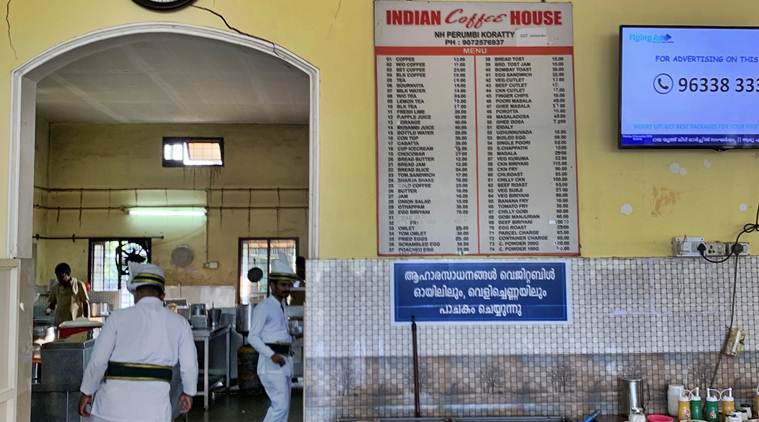
Breaking the mould after over six decades, the Indian Coffee House, which occupies a place of pride in the nation’s culinary history, appointed women staff as part of it’s workforce for the first time.
Earlier this week, six women were appointed on a temporary basis to three coffee houses that fall under the India Coffee Board Worker’s Cooperative Society headquartered in Kannur district of Kerala. A decision to hire women in kitchens and as part of hotel staff was taken a few months ago after the idea was mooted by state Industries minister E P Jayarajan.
“Many people have asked us to ponder about hiring women but it was E P Jayarajan who stressed on it. He asked at a time when women are going to Sabarimala after the Supreme Court verdict, why the Coffee Board should stay away (from hiring women). So we took it up, put out advertisements in newspapers, conducted interviews and prepared a final list of six women who were hired,” said P V Balakrishnan, president of the workers’ cooperative based in Kannur.
If the women staff are found to be competent in their probation period, Balakrishnan said, they would be made permanent. If the experiment succeeds, plans to open women-only coffee houses under it’s jurisdiction could fructify, he added.
As of now, the six women help out male chefs in kitchens, clean tables and dishes and assist customers at tables. Wages are on par with their male counterparts and an eight-hour shift starting at 8 am has been charted. They have been specifically deputed to coffee houses which have proper facilities such as changing rooms and female bathrooms.
A cooperative official said timings were the principal impediment to hiring women as restaurant staff. “Since all our food is prepared fresh, chefs have to arrive as early as 5:30 am to cook breakfast. We shut only at 10 pm, so if we hire women, we would need them to stay till late hours. That’s the only factor that stands in the way, otherwise it’s fine,” he said.
Priya Bijulal, one of the six women employed at the coffee house near the Medical College Hospital in Kozhikode, has to wake up at 3 am in the morning to finish her morning chores so that she can catch the 5:10 bus near her home in Koottalida, 34 kilometres from the city. Her husband, who works at a private firm, wakes up along with her to help her prepare breakfast and lunch for their schoolgoing children. Her bus to the Coffee House in the city takes one hour, 45 minutes.
“Actually, my husband encouraged me to apply for the job when he saw the ad,” she said, over phone.
Happy to bag the job, which comes with a certain sense of long-term security along with monetary allowances, Priya said her male colleagues at the restaurant treated her warmly when she walked in. “The work is good and the best thing is that I can leave by 4 pm so that I can reach home early,” she said.
The Kannur-based cooperative is one of the two in Kerala – the other based out of Thrissur – which runs 28 hotels and outlets across six districts in northern Kerala.
An official at the Thrissur cooperative, which manages 56 outlets across central and southern Kerala, said they are likely to follow the Kannur example and bring women into the workforce before Onam.
The workers’ society had taken shape in 1958 when A K Gopalan, founding leader of the Communist Party in India, gave a call to unite workers in the backdrop of the erstwhile-Coffee Board shutting down several hotels and throwing out it’s staff. Under Gopalan’s leadership, societies with workers at the forefront began to be formed across the country, the first in Bengaluru followed by Delhi. Across India, there are cooperative societies functioning in 14 states and coffee houses across all 30 states, the majority of them in Kerala.